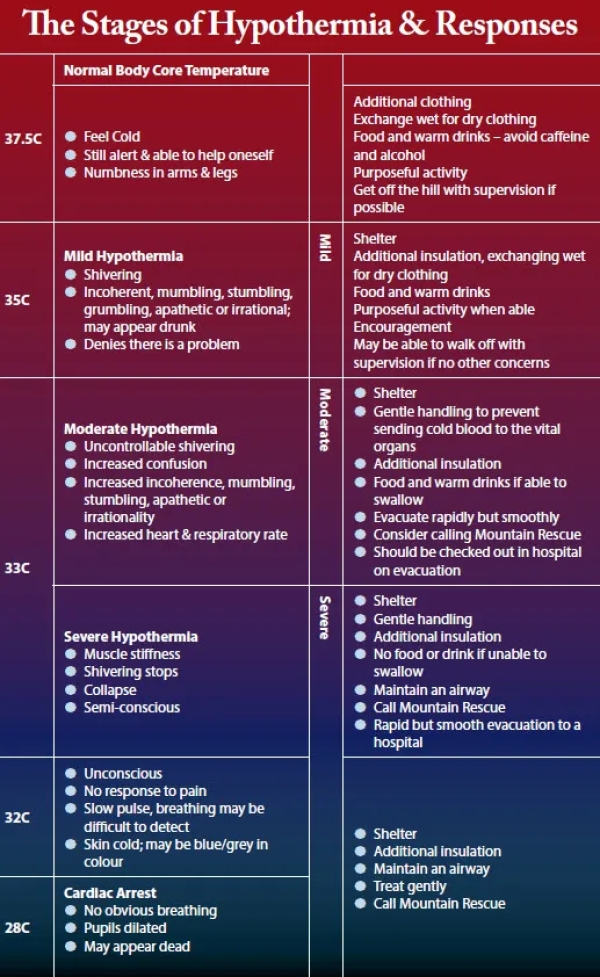A couple of incidents recently should serve as a reminder to us all of the dangers of hypothermia in fell running. Our bodies operate within a very tight temperature band and we stray out of that band at our peril.
Hypothermia is the dominant cause in most fell runner deaths. It is also, if not the prime cause, then a secondary concern in many Mountain Rescue call-outs. The condition is generally seen as Exhaustion Hypothermia. This is an insidious condition. It creeps up so slowly that its victims do not notice the symptoms of its gradual onset. The alternative, Immersion Hypothermia is brought about by sudden heat loss typically caused by falling in water – or a particularly large bog.
As humans we operate most effectively with a body temperature of around 37C. When heat is allowed to leave our bodies without being replaced the temperature will drop. A very small loss is all it takes for the early stages of Hypothermia to start to take hold. The FRA have recognised the problem by imposing minimum kit requirements, but merely following those requirements is not enough. We are all capable of reading weather reports and assessing the conditions for a race and it is up to us all to decide what needs to be carried and if that means carrying extra kit, that is what you should do.
But it is not just about what kit you carry. Recceing and preparing for a race is as important as kit. If a runner goes astray in a race and then crocks his ankle so that he cannot walk, then there is a danger that he will not be found by people who have turned out to look for him. So make sure that you know the route before you set off.
Another factor in race preparation is to ensure that you are wearing the right clothes and that you have eaten the right foods, both before and during the race to keep up your energy levels.
If you do get Hypothermia there are some things which you should not do.
- You should not drink tea or coffee because of the caffeine and you should not partake of alcohol.
- Do not try to warm your body up quickly, say by sitting in front of the pub fire.
- Do not rub your arms legs or hands or allow anyone else to do so either.
Things which you should do.
- You may be low on body sugar because of the exertion of the race, so have some sugary food like chocolate. A warm sugary drink will also help to replace the lost energy and warm your body up from the inside.
- Remove any wet clothing and get well wrapped up in dry clothing and/or blankets.
- Get off the hill and seek shelter.
The FRA have a leaflet which you can download and there is an interesting article on Everything Outdoors which relates specifically to hypothermia in fell running.
